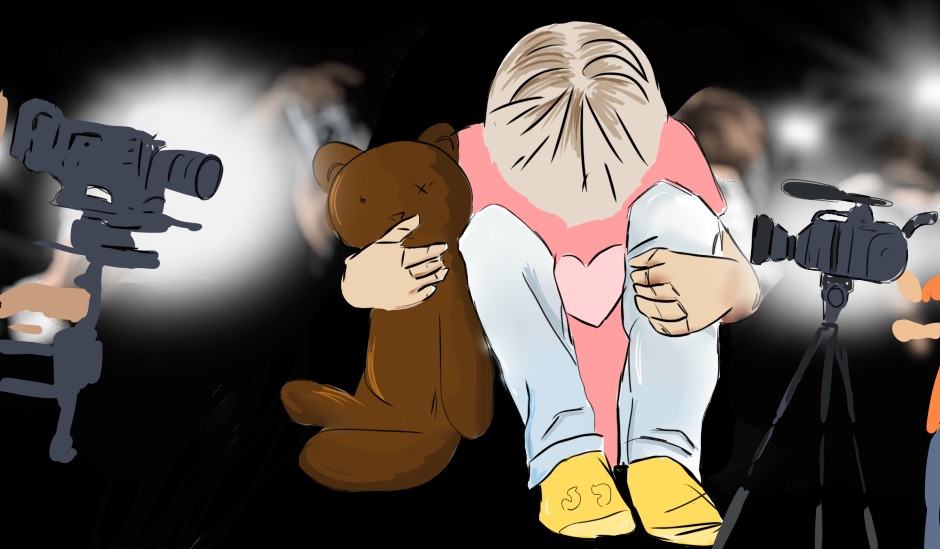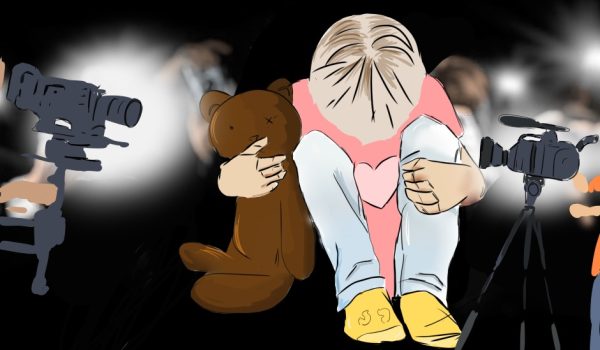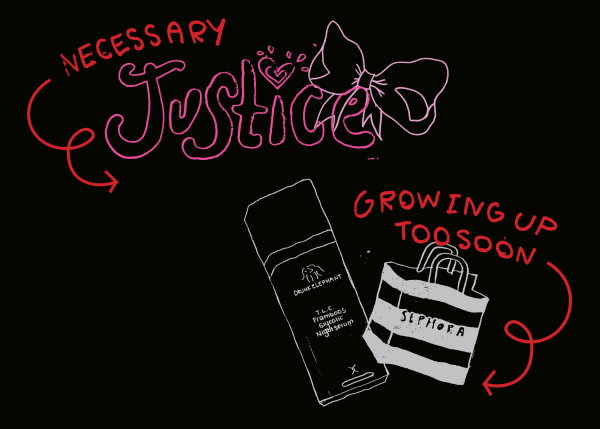[Opinion] The romanticization of serial killers is severely damaging and innappropriate
Two kids are watching a movie about a serial killer breaking out of prison. People have romanticize serial killers by making shows about them, writing books or even sending them letters.
October 26, 2022
Due to recent documentaries and increased media coverage on serial killers, such as Jeffrey Dahmer in the Netflix series “Dahmer- Monster: The Jeffrey Dahmer Story”, there has been a notable audience awareness of these murders and the individuals behind them. This has caused the sympathizing and romanticizing of these serial killers and strange logic behind it as an explanation for their cynical behaviors.
Romanticizing can fall under many definitions such as physically being attracted to that individual, claiming their behaviors are justified or are not as bad as claimed or overall being fascinated by them. Romanticizing serial killers proposes that these deranged behaviors and actions should be portrayed more positively than they should be.
Hybristophilia is a physical sexual attraction to those who have committed crimes. It stems from an attraction to situations involving danger or risk, which occurs more often in women than in men.
Many forms of media discuss true crime, ranging from podcasts, documentaries, movies, novels and more. True crime is fascinating in describing and explaining specific cases and occurrences, as well as being helpful in educating on these events. In the sense of portraying serial killers, the media tends to shed a positive light on them.
A larger number of women are interested in true crime as opposed to men, as roughly 73% of true crime audiences are women. When combined with a majority of male criminals and serial killers, this causes a strange dynamic between both demographics.
Television media facilitates this damaging romanticization by using visually appealing actors to depict serial killers. For example, Zac Efron and Evan Peters, who are regarded by audiences as physically attractive, play Ted Bundy in the movie, “Extremely Wicked, Shockingly Evil and Vile,” and Jeffrey Dahmer in the Netflix series, “Dahmer- Monster: The Jeffrey Dahmer Story.” This results in a misconception for the viewers that these appealing beloved actors are similar to the serial killers they portray on screen.
Portraying these vile people who have committed harsh and deranged actions with generally appealing actors further fuels the romanticization of these serial killers. It highlights their physical appearance more than if a less appealing actor was chosen for the role.
At times, people will forget the horrible actions committed by these people when they recall their physical appearance. Some even make weird remarks specific to traits of these criminals. This is especially damaging for victims or anyone who first hand experienced trauma by these individuals who go around spreading measly justification.
Although mental and physical wellbeing can be a cause for radical behavior, ultimately serial killers have zero justification for their behaviors. It was primarily a choice to commit those actions and they themselves were often aware of the immorality of it. Another thing to take into consideration is that for some individuals, their actions were responses to their impulses and urges. Still, it does not subtract from the fact that those deeds were still committed.
It is not acceptable to be praising the ground these serial killers walk on simply because of the fascination surrounding their actions and because of the physical attraction one feels towards them.
Serial killers are real people who have committed real crimes. Romanticizing them pushes a harmful agenda that these people deserve excessive recognition. It is important to educate society on serial killers in order to be aware of these situations. However, it must be done in a sensitive manner to come off as aware and educational as opposed to glamorized. Media outlets should be more conscious of the content they are producing to avoid pushing the narrative that serial killers should be romanticized.

























Anastasia • May 1, 2023 at 1:12 pm
I agree with everything, except with when you said that serial killers should be played only by actors who are considered “ugly”.
Unfortunately our society pushes the false narrative that if you are physically attractive then you are automatically a good person, when we all know that physical appearance have nothing to do with how a person behaves.
Even John Wayne Gacy, the killer known as “The Killer Clown” has a fandom, and let’s just say he’s not the kind of man our society considers physically attractive lol.
Vladius • Feb 14, 2023 at 4:05 pm
It is not only an “opinion” though. It is a fact!
.This is so messed up at so many levels I just can’t